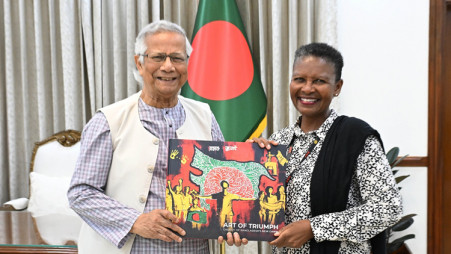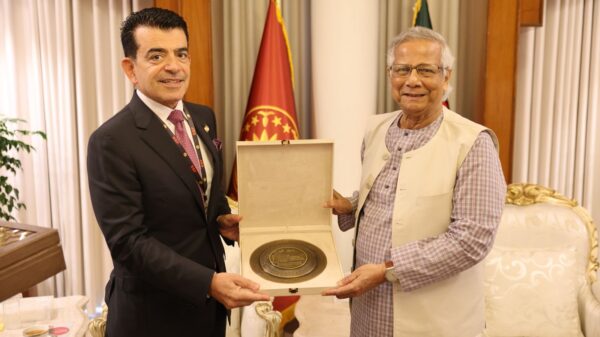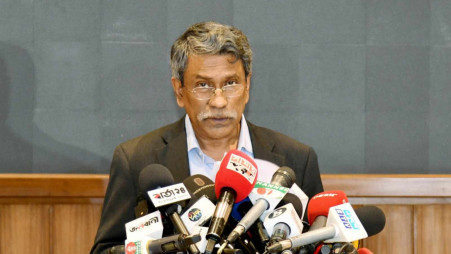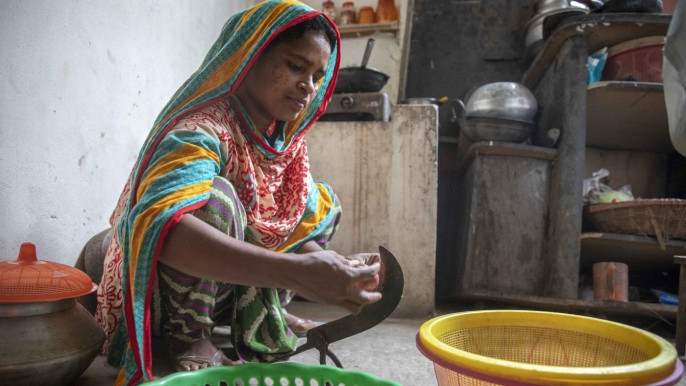Staff Reporter:
As the world observes May Day to honour workers’ rights, most domestic workers in Bangladesh remain unaware of the occasion—let alone the rights it symbolises. Denied weekly and public holidays, these workers often face increased workloads during national holidays, as employers stay home and household chores multiply.
Despite playing a vital role in urban households, domestic workers in Bangladesh remain among the most marginalised and vulnerable groups.
According to the Bangladesh Bureau of Statistics (BBS), around 2.5 million domestic workers are employed nationwide—80% of them women, many of whom have migrated from rural areas.
A separate study by the Bangladesh Institute of Labour Studies (BILS) puts the number slightly lower at two lakhs but underscores their exploitation and exclusion from formal labour protections.
Many of these workers endure long hours, low wages and physical and psychological abuse.
Ratna Begum, a part-time domestic worker in Dhaka’s Khilgaon area, said she works in several homes every day without a single day off.
“After working in other people’s houses all day, I still have to manage my home at night,” she told the Daily Sun.
Her sister Asma, a live-in domestic worker, faces even harsher conditions, working around the clock with no privacy or rest.
Both sisters migrated from Haluaghat in Mymensingh in search of livelihoods.
“We were born into poverty and had no choice but to do this work. But there is no dignity in it,” Ratna said.
Alarming data on abuse
According to BILS, 189 domestic workers were tortured in various forms over the past five years. Among them, 40 were raped and 31 were killed—most victims were girls aged between 9 and 18.
A 2024 BILS report also revealed that 67% of domestic workers suffer from psychological abuse. High rates of depression (68%), anxiety (60%) and social withdrawal (92%) were reported, with 81% of female domestic workers citing poor mental health due to stress at work.
Legal gaps and lack of implementation
Although the government adopted the Domestic Workers’ Protection and Welfare Policy in 2015, implementation has been weak. Domestic workers are still not formally recognised under labour law, leaving them without access to essential protections or social benefits.
Recently, Sharmeen S Murshid, adviser to the Ministry of Social Welfare and Women and Children Affairs, urged employers to ensure healthcare, education, leave and religious freedom for domestic workers. She acknowledged the widespread neglect and abuse, attributing it partly to the workers’ lack of education and social status.
Efforts toward change
Several NGOs, under the five-year SUNITI Project led by Oxfam and funded by the Canadian government, are working to improve the lives of 16,000 domestic workers in Dhaka.
Partner organisations—including Karmojibi Nari, Dushtha Shasthya Kendra (DSK), UCEP Bangladesh, Hello Task, Campei, BILS and RedOrange Communications—are providing life skills and vocational training.
“We are working to build awareness among domestic workers about their rights and to promote their recognition as formal labour,” said Shakharav Hossain Sebok, social mobiliser at DSK.
Until domestic workers are formally recognised and protected under labour laws, however, May Day will remain a symbolic occasion they neither celebrate nor benefit from.










































